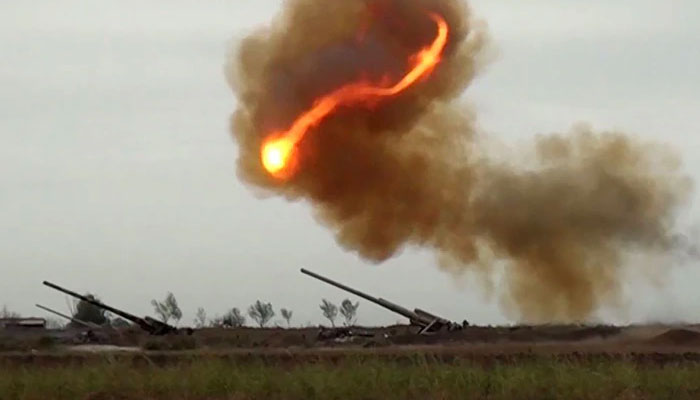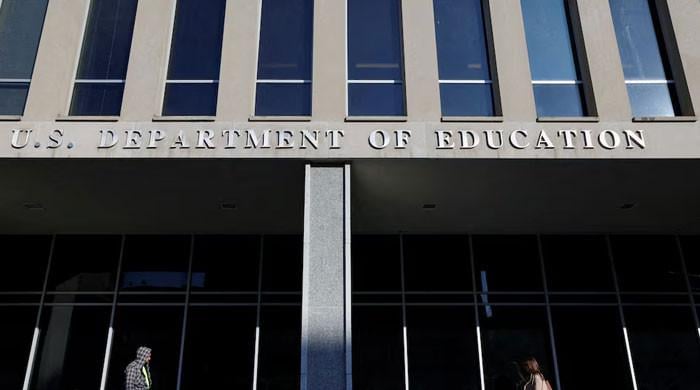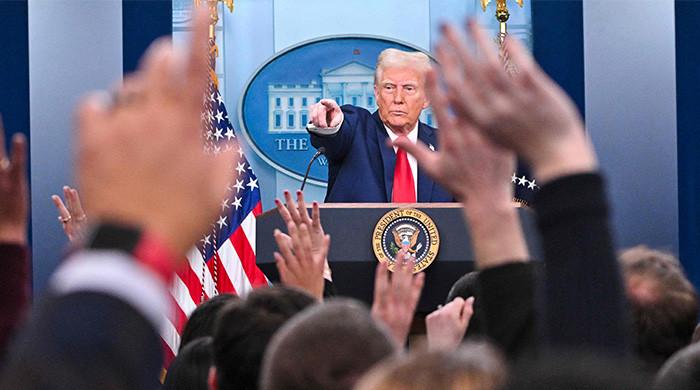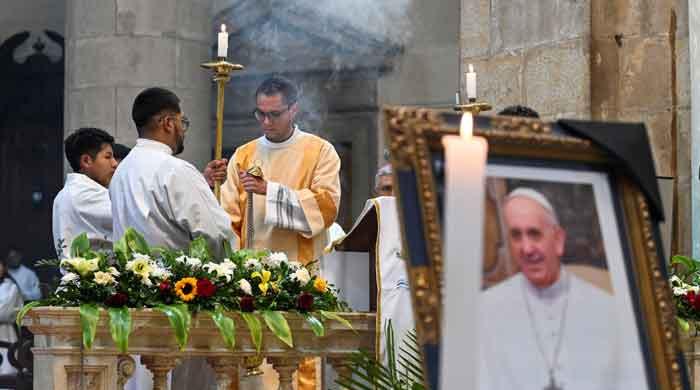Azerbaijan-Armenia war: A timeline of the Nagorno-Karabakh dispute
On the third day of fighting since Sunday, the death toll reached 98, including 84 separatist fighters and 14 civilians
September 29, 2020

PARIS: The total number of confirmed deaths has risen to 98 on the third day of the war between Azerbaijan and Armenia over the dispute of Nagorno-Karabakh, a breakaway region of Azerbaijan mainly inhabited by Armenians.
By Tuesday, the third day of fighting since Sunday, the deaths toll reached 98, including 84 separatist fighters and 14 civilians. But each side claims to have killed hundreds of enemy troops.
Here is a timeline:
'Counter-offensive'
Armenia and Azerbaijan, two former Soviet republics in the Caucasus, have accused each other of initiating deadly clashes, the worst since 2016, that broke out on Sunday in their decades-long territorial dispute.
Ethnic Armenian separatists seized the Nagorno-Karabakh region from Baku in a 1990s war that claimed 30,000 lives. Since then, clashes have been a regular occurence between Azerbaijani troops and the rebels, but also between Baku and Yerevan.
On Sunday, Azerbaijan's defence ministry said it launched a "counter offensive to suppress Armenia's combat activity and ensure the safety of the population."
The enclave's separatist authorities claimed its troops shot down two Azerbaijani helicopters and three drones. Azerbaijan says it has just lost one helicopter.
Talks to resolve one of the worst conflicts to emerge from the 1991 collapse of the Soviet Union have been largely stalled since a 1994 ceasefire agreement.
France, Russia and the United States have mediated peace efforts as the "Minsk Group" but the last big push for a peace deal collapsed in 2010.
'Mobilisation'
From the announcement of the first clashes, Armenian Prime Minister Nikol Pashinyan and Nagorno-Karabakh authorities declare martial law and military mobilisation.
Turkish President Recep Tayyip Erdogan, whose country is a firm supporter of Azerbaijan and has poor relations with Armenia, promises Baku support.
Yerevan and the Nagorno-Karabakh authorities denounce Turkish "meddling" and accuse Ankara of providing weapons, military specialists and pilots of drones and planes to Azerbaijan.
Pashinyan says "we are on the brink of a full-scale war in the South Caucasus, which might have unpredictable consequences".
Azerbaijan's President Ilham Aliyev promises to win against Armenian and separatist forces.
International concern
International reaction is quick, with former Soviet-era master Moscow calling for an immediate ceasefire and talks between the arch-rivals.
The European Union warns regional powers not to interfere in the fighting and condemns a "serious escalation" that threatens regional stability.
The United States urges "both sides to cease hostilities immediately".
Iran says it is ready to launch talks between the two neighbouring sides.
Positions lost
By late Sunday, Azerbaijan says it has retaken a handful of villages under Armenian control, something denied by Yerevan.
Azerbaijani forces also capture from rebels a strategic mountain, the Murovdag peak, in Karabakh.
Azerbaijan declares martial law and a curfew in the capital Baku and several other cities.
Erdogan weighs in
On the 28, Turkey's Erdogan demands Armenia put an end to its "occupation" of Nagorno-Karabakh and vows complete support for Baku.
UN Secretary-General Antonio Guterres says he is "extremely concerned over the fresh resumption of hostilities".
The authorities of Nagorno-Karabakh say they have regained territory lost the day before, while Azerbaijan says it has made advances, using rockets, artillery and air power.
On Monday evening Armenia's defence ministry says Azerbaijani forces launched a "massive offensive at the Karabakh frontline's southern and north-eastern sectors".
UN Security Council meets
By Tuesday, the third day of fighting, the total number of confirmed deaths has risen to 98 — including 84 separatist fighters and 14 civilians. But each side claims to have killed hundreds of enemy troops.
The UN Security Council schedules emergency talks Tuesday behind closed doors on the crisis, at the request of Germany and France, according to diplomats.
US Secretary of State Mike Pompeo calls for an end to fighting and a return to negotiations "as quickly as possible".











